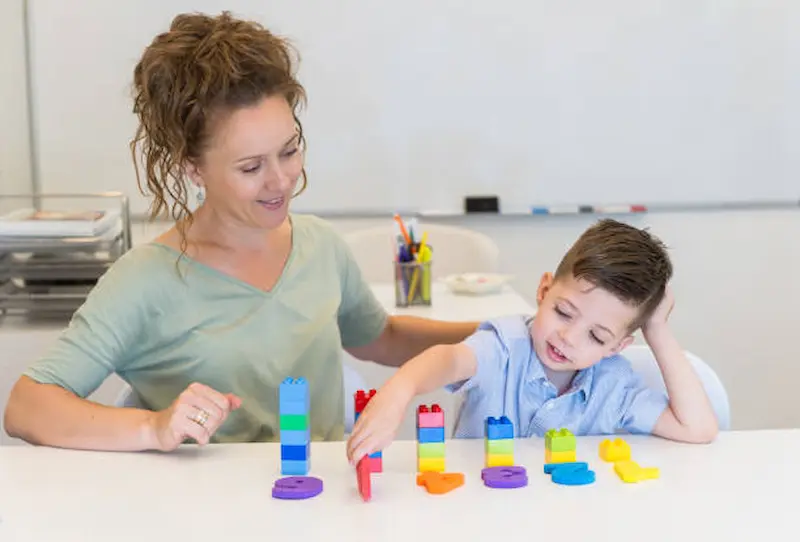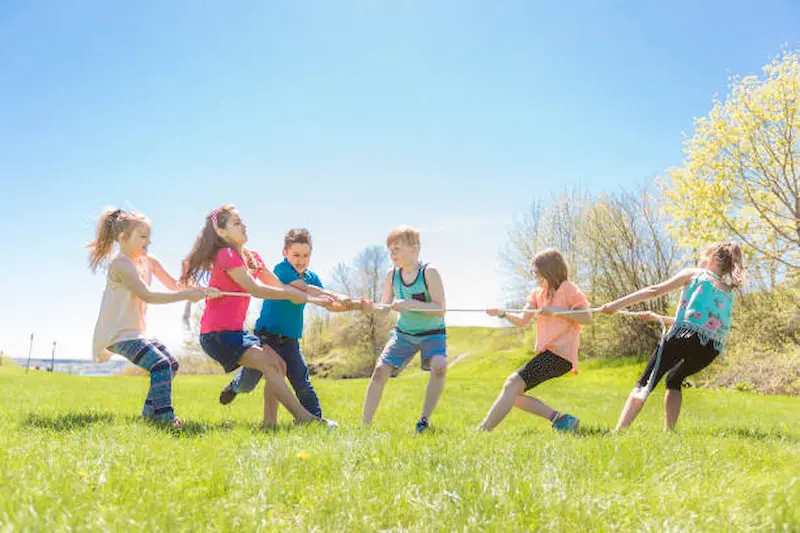Extracurricular activities for kids encompass any organized, non-academic pursuits outside of the standard school curriculum. These activities can include sports, arts, clubs, and more, serving as a valuable means to develop diverse skills, interests, and social connections during a child’s formative years. Engaging in extracurricular activities fosters crucial life skills such as teamwork, time management, and leadership, enhancing students overall personal and professional development.
In this blog, we’ll explore the importance of extracurricular activities for kids. These activities provide a crucial avenue for enhancing social, cognitive, and physical development, fostering well-rounded individuals who are better prepared for future challenges and opportunities.
Table of contents
Benefits of Extracurricular Activities

Extracurricular activities offer a wealth of advantages for students beyond the classroom.
1. Academic Advantages of Participation:
Extracurricular activities provide numerous academic benefits. Students engaged in these activities often demonstrate improved time management, organizational skills, and the ability to balance academics with other commitments. Additionally, participation in academic clubs or competitions can enhance subject-specific knowledge and problem-solving abilities.
2. Development of Social Skills:
Extracurriculars promote the development of essential social skills. Through teamwork, collaboration, and interaction with peers, students learn how to communicate effectively, resolve conflicts, and build valuable interpersonal relationships, which are critical life skills.
3. Building Confidence and Self-Esteem:
Participation in extracurriculars can boost a student’s self-confidence and self-esteem. Achieving goals, receiving recognition for accomplishments, and mastering new skills all contribute to a sense of self-worth and empowerment.
4. Exploring Interests and Passions:
Extracurricular activities offer students a platform to explore and pursue their interests and passions outside the classroom. This can help them discover their talents and develop a deeper sense of purpose, which can guide their future academic and career choices.
Incorporating extracurricular activities for kids into a student’s life can provide a well-rounded education that goes beyond textbooks, fostering personal growth, and character development.
Types of Extracurricular Activities

1. Sports and Physical Activities:
Participating in sports and physical activities not only promotes physical health but also teaches teamwork, discipline, and sportsmanship. Students learn the value of practice, goal setting, and pushing their limits, fostering a strong work ethic and a healthy lifestyle.
2. Creative Arts:
Creative arts activities, including art for kids, allow students to express themselves and develop their artistic talents. These pursuits enhance creativity, self-expression, and performance skills, nurturing a deeper appreciation for culture and artistic expression.
Engaging in art at an early age also fosters a lifelong passion for creative exploration and can have a positive impact on a child’s overall development.
3. Academic and Intellectual Pursuits:
Academic clubs, debates, and competitions such as science or math clubs expand knowledge and critical thinking skills. They encourage intellectual curiosity and a deeper understanding of academic subjects.
4. Community Service and Volunteering:
Engaging in community service and volunteering activities instills a sense of social responsibility and empathy. Students learn about giving back, civic engagement, and the impact of their actions on the community, cultivating a strong sense of citizenship.
Each type of extracurricular activity offers unique opportunities for students to explore their interests, develop various skills, and enrich their personal growth, contributing to a well-rounded and fulfilling educational experience.
Balancing Academics and Extracurriculars

Balancing academics and extracurricular activities is a crucial aspect of a student’s life. Effective time management and prioritization skills are key. Students should establish a schedule that allows them to excel academically while participating in activities they’re passionate about. Additionally, educators and parents can provide support by ensuring that academic expectations are realistic and by encouraging students to find a healthy equilibrium between their studies and extracurricular commitments, fostering holistic personal growth.
Choosing the Right Activities
Selecting the most suitable extracurricular activities for your child is pivotal. Consider their interests, strengths, and areas where they need improvement. Balance is key – a mix of sports, arts, and academic clubs can provide a well-rounded experience. Don’t forget to factor in time commitments, as overloading can lead to burnout. Ultimately, the right activities should foster growth, build character, and ensure your child enjoys their extracurricular journey, making learning fun and intriguing, like sharing fun facts for kids along the way.
Parent’s Role in Supporting Extracurricular Engagement

Parents play a pivotal role in their child’s extracurricular involvement. They can encourage the exploration of interests, provide transportation to activities, and show enthusiasm for their child’s pursuits. Additionally, parents can foster time management skills, ensuring a balance between academics and extracurriculars. By participating actively in their children’s interests, parents contribute to their overall development, self-esteem, and academic success, ultimately creating well-rounded individuals prepared for future challenges. Seeking and sharing parenting advice can further enhance their supportive role in their child’s growth.
10 Best Extracurricular Activities
Extracurricular activities are instrumental in helping students develop skills and qualities that go beyond the academic curriculum. Here, we delve further into these 10 best extracurricular activities:
- Sports Teams:
Team sports provide a platform for physical fitness, instill discipline, and teach the value of teamwork and sportsmanship. Students learn to work together to achieve common goals, enhancing their social and physical well-being. Engaging in games for kids to play within a team context adds an element of fun and excitement, making the learning experience even more enjoyable and memorable.
- Music Ensembles:
Musical groups such as bands and choirs foster a love for music, improve musical abilities, and enhance performance skills. Students also learn to cooperate and synchronize their efforts to create harmonious melodies.
- Debate Club:
Participation in debate sharpens critical thinking, research, and persuasive communication skills. Debaters gain confidence in expressing their viewpoints and effectively countering opposing arguments.
- Science Olympiad:
This club nurtures an interest in science and technology by engaging in competitions that cover various scientific disciplines. Students develop problem-solving abilities and a deeper understanding of scientific principles, which can be further enhanced through interactive and hands-on science for kids activities and programs.
- Art Club:
Art provides an outlet for creative expression. By participating in art-related activities, students explore their artistic potential, enhance their creativity, and gain a means of self-expression. Engaging with an art hub for kids can further nurture their artistic talents and provide valuable resources for creative development.
- Community Service:
Volunteering in the community fosters empathy and a sense of social responsibility. Students learn the value of giving back and making a positive impact on the world while developing a greater understanding of societal issues.
- Student Government:
Joining student government allows students to take on leadership roles and participate in the decision-making process at their school. It promotes organizational and leadership skills and teaches the importance of responsible governance.
- Chess Club:
Chess is a game of strategy, and its club hones strategic thinking, problem-solving, and patience. Students also engage in friendly competition and develop a sense of sportsmanship, which can be further enhanced through online games for kids, offering a digital platform for learning and enjoyment.

- Drama Club:
Drama encourages creativity and self-expression through acting and theatrical productions. It builds confidence and public speaking skills, while also fostering a deeper appreciation for the arts.
- Coding Club:
In the digital age, coding for kids is a valuable skill. Students in coding clubs learn programming languages and problem-solving techniques, providing them with essential skills for potential careers in technology and enhancing their logical thinking abilities. This hands-on experience equips them with the tools to thrive in an increasingly tech-driven world.
These extracurricular activities cater to a wide range of interests and offer students opportunities to pursue their passions, develop new skills, and ultimately become more well-rounded individuals, both academically and personally. They also foster relationships and a sense of belonging, which can enhance the overall educational experience.
Conclusion
Extracurricular activities for kids refer to organized, non-academic pursuits that students participate in outside of their regular school hours. Engaging in extracurricular activities for kids offers numerous benefits, including the development of important life skills like communication, problem-solving, and discipline. These activities also provide a platform for building self-confidence, exploring interests, and fostering social connections that contribute to a well-rounded and enriched childhood.
To get your hands on more such articles, educational content, and free resources on coding for kids, robotics courses, game development, etc., check out the BrightCHAMPS Blog Page now!
Frequently Asked Questions ( FAQs )
A1: Extracurricular activities can benefit your child’s development by enhancing social skills, time management, teamwork, and passion for various interests.
Q2: What types of extracurricular activities are most suitable for my child’s age and interests?
A2: The most suitable extracurricular activities depend on your child’s age and interests, but options may include sports, arts, clubs, or academic enrichment programs.
Q3: How can I help my child balance academics and extracurricular commitments effectively?
A3: You can help your child balance academics and extracurricular commitments effectively by creating a schedule, setting priorities, and promoting time management skills.
Q4: Are there any financial considerations when enrolling my child in extracurricular activities?
A4: Yes, there are financial considerations when enrolling your child in extracurricular activities, including fees, equipment, and transportation costs.
Q5: Do colleges really value extracurricular involvement when considering admissions?
A5: Yes, colleges value extracurricular involvement when considering admissions; it demonstrates a well-rounded student with diverse interests and skills.


 We are an army of educators and passionate learners from BrightChamps family, committed to providing free learning resources to kids, parents & students.
We are an army of educators and passionate learners from BrightChamps family, committed to providing free learning resources to kids, parents & students.














